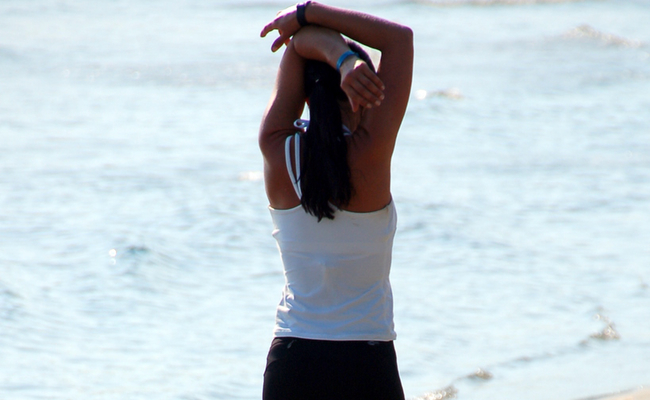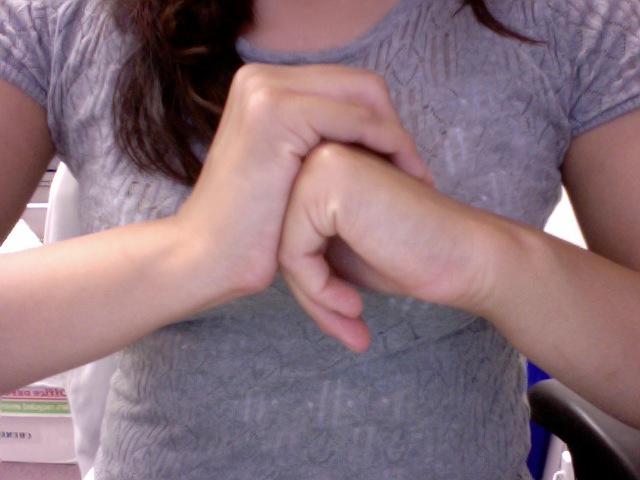[FACT OR FAKE #35] Cracking Your Knuckles Is Bad For Your Fingers
Every now and then we all crack our knuckles and sometimes our other joints creak and pop too. Regardless of the age, should we be concerned? Are our noisy joints bad? We at SAYS decided to find our what causes the wince-inducing sound, and sifts through the evidence to see whether it actually damages our joints.
Some people crack their knuckles by pulling the tip of each finger one at a time until they hear a crack. Others make a tight fist or bend their fingers backwards away from the hand, cracking the lot at once.
If you are one of those people who sits and cracks your knuckles while others wince, at some point somebody is bound to have told you that cracking your joints gives you arthritis.
For some it’s a nervous habit; for others the sensation brings relief
Depending on which research you read, between 25 and 54% of people do it, with men more likely to do so than women.
Cracking your knuckles feels good because it stretches the joint and stimulates the nerve endings found there. So can it be dangerous?
Cracking your fingers or (gag) toes, is simply you forming—then popping—an air bubble in your synovial fluid, the gooey stuff that gathers in the cavities of your digits and joints.
boston.comAnd while this oft-cited study found that the practice doesn't increase your risk of developing arthritis as you age, researchers did find that some (but not all) elderly knuckle-crackers have slightly weaker grip strength than non-crackers.
That said, this study came out well before improving hand strength (via weights, golf, tennis-ball squeezing, etc.) became standard in geriatric care.
Now, before we get to the FACT OR FAKE part, let's first know a bit about our knuckles, the common name for the joints in our fingers
A joint is a place where two bones come together to allow movement. The bones that make up a joint are held together by tough, flexible tissue called ligaments.
washingtonpost.comJoints are also covered with a capsule. A special type of liquid called synovial fluid is contained within the capsule. Synovial fluid acts as a lubricant and contains nutrients for the cartilage and bone. The synovial fluid also contains dissolved gas.
When a person stretches a joint to crack his knuckles, he creates negative pressure within the capsule. That vacuum allows more dissolved gas to enter the capsule as a bubble.
washingtonpost.comWhen the gas bubble bursts, you hear the characteristic popping sound that we all know and some of us love. The reason you can't re-crack your knuckles immediately is that the joint needs more gas first.
thenakedscientists.comFACT: Cracking your knuckles does not actually hurt your finger bones or cause arthritis. The sound you hear is just gas bubbles bursting.
The common misconception that cracking your joints will cause arthritis is just that—a misconception.
But taking an engineering approach, cracking the knuckles repeatedly over many decades could in theory damage the cartilage covering the joint
Comparisons have even been made with the mechanical wear and tear accrued over time by ship’s propellers, but the evidence that the same is happening in people’s hands is thin.
In fact, very few studies have been carried out at all. Perhaps one of the most well-known is the self-inflicted research rewarded with an Ig Nobel Prize in 2009.
For more than 60 years, a Californian doctor called Donald Unger cracked the knuckles of his left hand at least twice a day, leaving his right knuckles uncracked. His conclusion? "I'm looking at my fingers, and there is not the slightest sign of arthritis in either hand," he said.
So the next time you feel like cracking your knuckles, do so with the knowledge you won’t get arthritis from it
You might, however, have damage to your ligaments and tendons that reduces your grip strength, but hey, what vice doesn’t come with a little risk!






